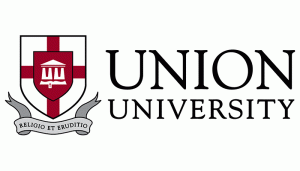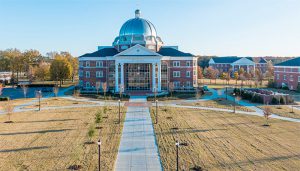Union University news office
JACKSON, Tenn. — Union University is doing its part to assist health care providers during the COVID-19 pandemic by donating N95 face masks and medical supplies and by 3D printing components of face shields that help reduce risk of exposure.
Kelly Harden, dean of Union’s College of Nursing, said the university had donated more than 800 N95 masks and that all three campuses – Jackson, Germantown and Hendersonville – were involved.
“We’re health care providers,” Harden said. “We want our colleagues to be protected. We’re doing what we can do to help.”
The donation followed Tennessee Gov. Bill Lee’s executive order asking for donations of medical supplies, Harden said. Paul Mayer, Union’s director of health services, also contributed N95 masks.
Harden said the College of Nursing takes regular mission trips to the Dominican Republic, with supplies for that trip stored in the attic of White Hall. She remembered seeing some N95 masks up there – even though those masks aren’t typically used on the trip. After the governor’s order, she returned to the attic on Tuesday looking for the masks and found 300 of them.
 “For some reason, there were N95 masks up there,” Harden said. “I don’t remember where they came from. God does. It’s just a God story.”
“For some reason, there were N95 masks up there,” Harden said. “I don’t remember where they came from. God does. It’s just a God story.”
In addition, the College of Nursing and the College of Pharmacy donated other supplies as well, such as gowns, shoe covers, sterile gloves, regular masks, nasal swabs and isolation gowns.
Georg Pingen, associate professor of engineering, said he is using the university’s 3D printers to produce a specific component to face shields being used by medical personnel. Pingen found out about the need through a Jackson Sun story about how state universities are helping to produce the face shields.
After some inquiries at Austin Peay State University and the Tennessee Higher Education Commission, Pingen received a file and a request to start production. Pingen is printing the piece that connects the elastic head strap to the plexiglass face shield.
It takes about three hours for three pieces to be produced on each printer, and Pingen said he’ll soon have 11 printers at work. So far, he has printed about 100 pieces with a current output of 150 per day. Union students Shawn Ross and Davina Morris have also assisted Pingen in the project. B&R

